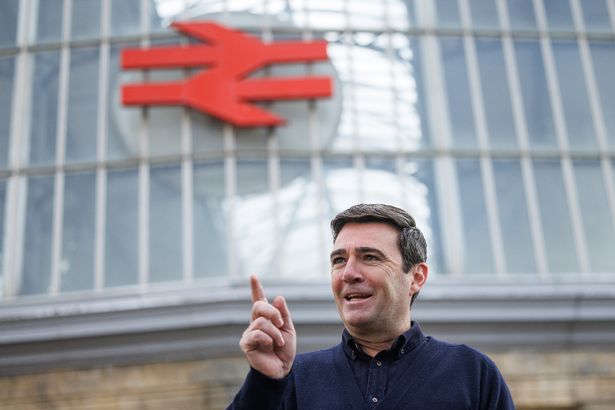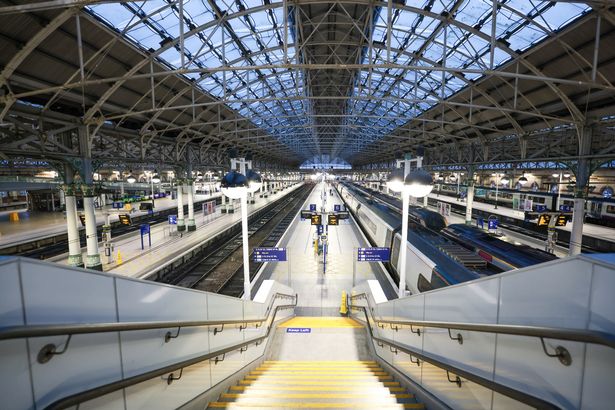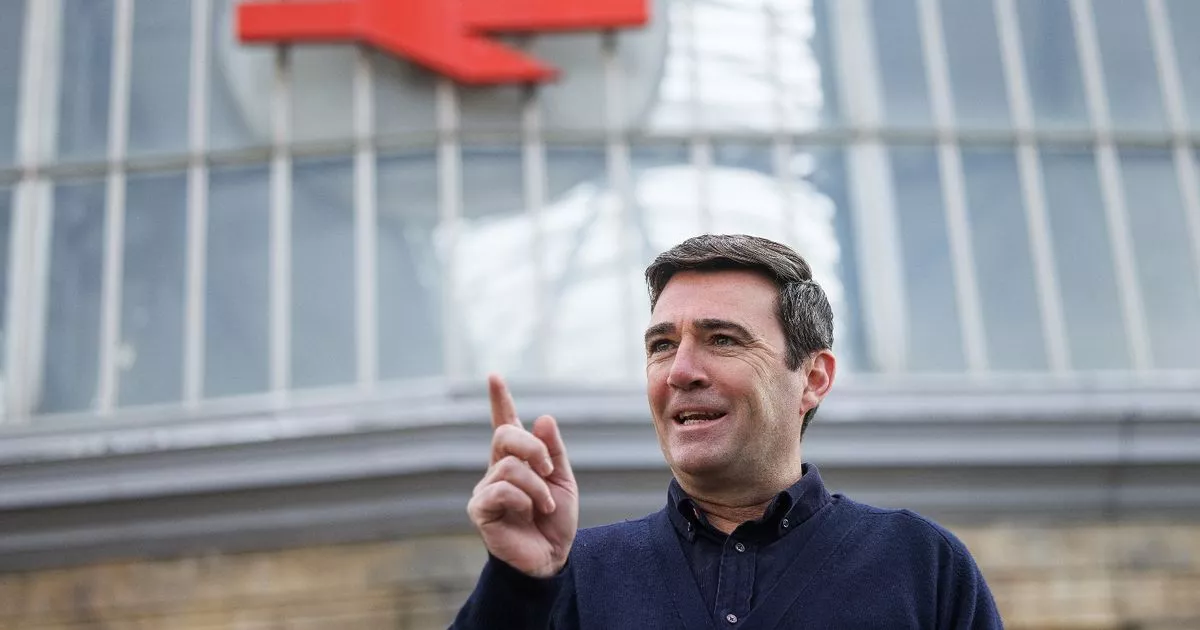The mood in Greater Manchester is brighter this evening Andy Burnham and Bev Craig have criticised calls for NPR to be axed(Image: Joel Goodman)
Andy Burnham and Bev Craig have criticised calls for NPR to be axed(Image: Joel Goodman)
This morning felt like groundhog day in Manchester:
Another party conference season was looming, and another northern rail project had seemingly hit the buffers.
At 2023’s Conservative Party conference in Manchester, Rishi Sunak saw fit to time on the Birmingham to Manchester leg of the HS2 line.
Last year it was Labour’s turn. Then-transport secretary Louise Haigh revealed government money for Andy Burnham and Steve Rotherham’s Liverpool-Manchester line was ‘practically unavailable’.
Both developments led to hastily-organised press conferences where local leaders lamented that, once again, Greater Manchester was being held back.
Sign up to the MEN Court newsletter here
And on Wednesday (September 25), it looked like similar noises would be made after it was revealed Keir Starmer was delaying an expected announcement giving Northern Powerhouse Rail (NPR) the go-ahead.
Mayor of Greater Manchester Andy Burnham called the news ‘disappointing’. Bev Craig, Manchester council leader, told the transport secretary ‘we need to get on with it’.#
“We’ve always argued, get it right and do it once — and we will push for the best deal for Manchester,” she added in a statement.
It was the latest setback for the city on NPR, first announced by then-chancellor George Osbourne in 2014.
 Mayor of Greater Manchester Andy Burnham called the news ‘disappointing’(Image: Joel Goodman)
Mayor of Greater Manchester Andy Burnham called the news ‘disappointing’(Image: Joel Goodman)
Originally envisaged as a high-speed rail line right across the north, after various cuts and rebrandings, NPR survives today as a plan for a high-speed connection between Liverpool and Manchester.
But the mood in Greater Manchester is brighter this evening compared to past hiccups after the Prime Minister publicly backed NPR again, explaining: “I’m absolutely committed to Northern Powerhouse Rail.
“We saw with HS2 what happens when a government doesn’t take time to get it right. This is about taking the time to get this right. It’s not deviating from the commitment.”
The Local Democracy Reporting Service understands the delay resulted from cost analysis of the proposed route taking longer than anticipated, but the government ultimately agreed to include a Manchester Airport stop after some reports suggested it could be axed.
It is now thought an announcement could be made in weeks, after final details are worked out.
NPR still on the table will likely draw a collective exhale among Greater Manchester’s politicians and transport bosses.
And that’s not just because of faster journeys between Manchester and Liverpool.
The new high-speed line is planned to start at an underground Manchester Piccadilly, running to Manchester Airport, Warrington Bank Quay, then a new Liverpool Central station.
Passengers could expect to whizz from one end to the other in just 35 minutes, with trains running every 10 minutes.
 Manchester’s Piccadilly Station(Image: Kenny Brown | Manchester Evening News)
Manchester’s Piccadilly Station(Image: Kenny Brown | Manchester Evening News)
On paper, NPR is a £17bn train line serving an airport, a town, and two cities which already have well-established connections.
But the reason why leaders will be so relieved NPR lives on is that it ‘unlocks’ so many more transport improvements for the region.
One obvious benefit is moving Piccadilly underground creates a swathe of city centre land for new homes, shops, and offices, which the LDRS also understands is the central element of Greater Manchester’s argument to the government.
They say the multi-billion-pound project can be paid for using a mix of funding models, including ‘land value capture’ where increased land values are placed on the balance sheet, which is how London’s Elizabeth Line was paid for.
An underground Piccadilly would also be the anchor point to the three tunnels under the city centre Andy Burnham has started initial prep work on for trams and trains.
On the surface, trains to and from Manchester Airport, Warrington, and Liverpool will continue to jostle for space on crowded tracks, limiting options for Bee Network Rail bosses to alter services as passengers wish — one of the core arguments for taking commuter trains into public control.
NPR also provides the ‘easiest’ method of expanding rail capacity on the West Coast Mainline after HS2 was canned, experts say.
While NPR’s is on pause and not on the way to the scrapheap, that long list of linked projects serve as a reminder Greater Manchester has a lot riding on it.
